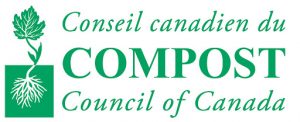Compost Council of Canada signs on to “4 for 1000”


Posted in: New Initiative
Date Posted: 2020-05-11
Organization Name: Compost Council of Canada
On the occasion of the 25th Anniversary of International Compost Awareness Week, the Compost Council of Canada has signed on to the “4 per 1000” international initiative to support increasing the organic matter content in soils and help sequester carbon.
Originally initiated by France, the “4 per 1000” aims to demonstrate that agricultural soils can play a crucial role where food security and climate action are concerned.
“The work of the members of The Compost Council of Canada has helped realize the recycling of about 4.5 million tonnes of organics annually, with the organic matter that is produced being returned to local soils,” said Executive Director Susan Antler. “This, in combination with soil health education, training and ever greater involvement by all aspects of Canadian society to recycle organic materials will be just one of the ways to help support this fundamentally important initiative. We applaud the many organizations who have led this program, looking forward to contributing to its further acceptance and development.”
An annual growth rate of 0.4 percent in the soil carbon stocks, or four percent per year, in the first 30 – 40 centimetres of soil, would significantly reduce the CO2 concentration in the atmosphere related to human activities.
The voluntary initiative proposes measures such as the following:
- reduce deforestation;
- encourage agro-ecological practices that increase the quantity of organic matter in soils and meet the 4% target per year;
- nourish the soils with manure and compost;
- restore crops, pastures and degraded forests and the arid and semi-arid areas of our planet;
- plant trees and legumes (which also fix nitrogen from the atmosphere in the soil, favouring the foliar growth of plants);
- collect water at the foot of plants.
For more information about “4 per 1000”, please visit www.4p1000.org.
For an overview of the program, watch this video: https://www.youtube.com/watch?v=AY9YVwJZDvw&feature=emb_title.
